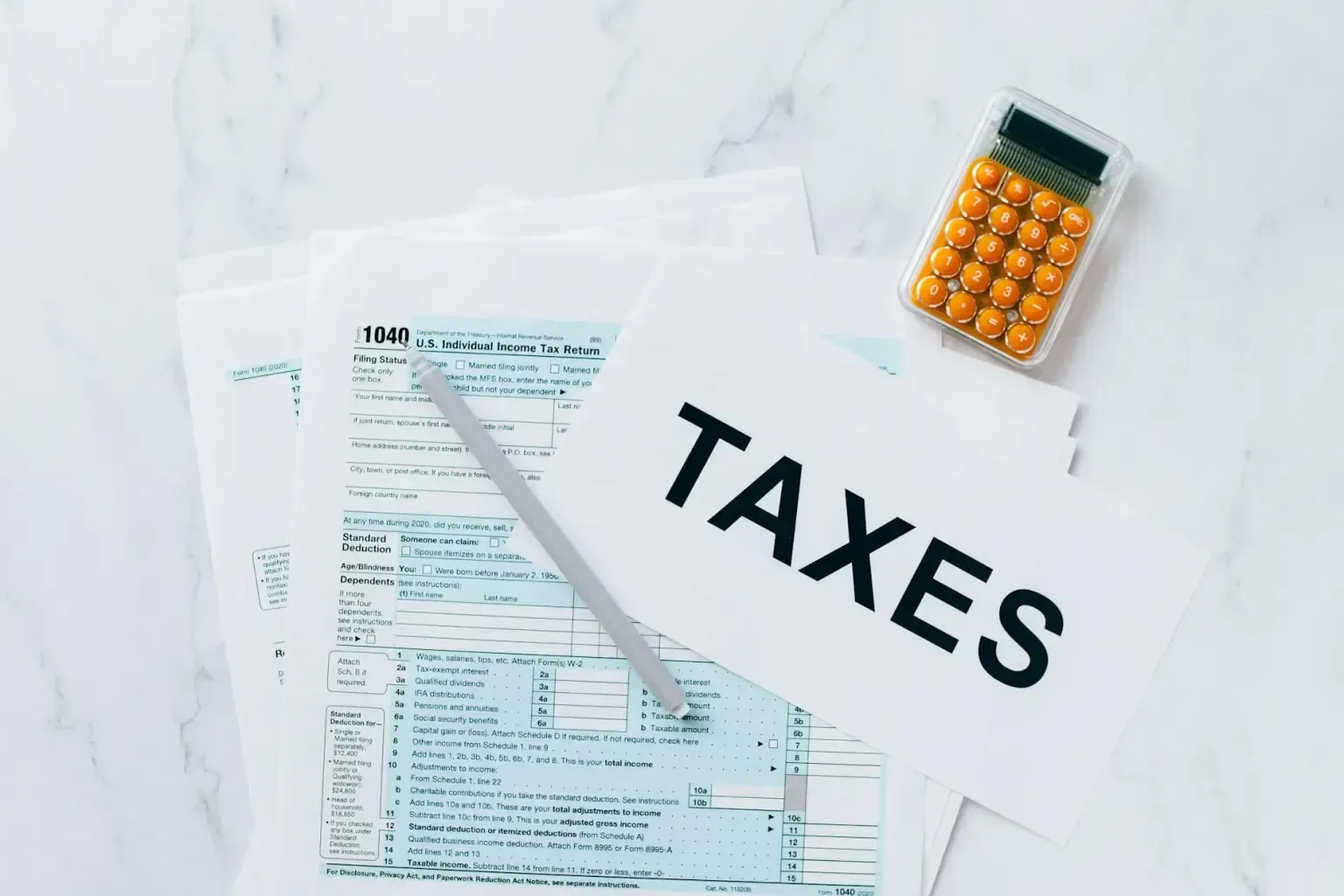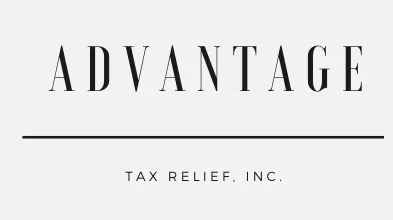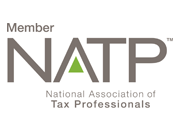Taking Steps to Correct Errors on Your Tax Return
June 26, 2023
How to correct your tax returns with ease
Preparing and understanding tax returns can be complex and challenging. Even professionals sometimes struggle to ensure every number and detail is accurate. Often, mistakes are only noticed after submitting the return online or sending it via mail, or worse, when the IRS sends a notice regarding discrepancies. If you find yourself in this situation, it's crucial to know what to do next.
Fortunately, there are several actions you can take. However, if you are unsure where to begin, it is advisable to seek assistance from a tax resolution professional. Our team of experts
specializes in navigating the complexities of the IRS, providing you with peace of mind. Whether you owe back taxes or have outstanding tax debt, contact us today for a free consultation.
Common Types of Errors
The IRS scrutinizes each tax return for various red flags. Here are three common mistakes made by taxpayers:
- Not reporting all income: Regardless of the amount earned, it is essential to report all income accurately. Unless you run a strictly cash-based business (which raises a red flag), the IRS receives duplicate copies of W-2, 1099, and other forms detailing your income. If your reported income does not match the IRS records, it can raise suspicion.
- Overstating business expenses: Depending on your occupation, there may be legitimate expenses that your employer does not reimburse. If you operate a business, there might be a temptation to inflate deductions. While some deductions may be valid, it's important to adhere to the approved list and avoid claiming deductions far beyond the norm. Consult with a tax professional to ensure compliance with tax laws and prevent improper deductions on your return.
- Math errors: Whether filing electronically or using paper forms, your information is entered into a computer system. Computers excel at mathematical calculations, making any errors or discrepancies stand out. While a math error may not necessarily lead to an audit, it can attract unwanted attention. Double-checking your returns and involving a qualified tax professional can help prevent such issues.
Filing an Amended Return - The 1040X
Individual income tax returns can be amended within three years of the original due date by filing IRS Form 1040X. This form allows you to provide the IRS with information on what was originally filed, the corrected details, and the reason for the changes. Additionally, it enables adjustments to personal exemptions, such as correcting errors related to dependents.
Here are a few tips for filing the 1040X form:
- Use a separate 1040X form for each year requiring corrections and send each form in its own envelope.
- Clearly indicate the tax year at the top of each form.
- Explain the changes and reasons for correction on the back of the form. Include any schedules, forms, or supporting documentation affected by the changes.
- If your federal corrections impact your state taxes, submit a corrected return for the relevant state as well.
It is strongly recommended to consult a tax resolution professional for assistance with your amended return. They can help file multiple years of unfiled tax returns, facilitate settling for a reduced amount, and provide valuable guidance to help you avoid tax-related troubles.
You Have 3 Years
Many taxpayers only discover errors in their tax returns when preparing subsequent year's returns. These mistakes may come to light during discussions with tax preparers or through personal review. There is no specific time limit for correcting a return; amendments can be made whenever an error is noticed. However, the IRS generally accepts corrections up to three years after the original return's filing date.
The 1040X is a Paper-Only Form
Even if you typically e-file your tax returns, the 1040X form must be filed as a physical paper form. The IRS does not currently accept electronic filing of the 1040X form. Pay attention to the correct mailing address for the form, as it differs from the address for regular returns.
If Correcting Mistakes Results in Additional Taxes Owed
If you discover a mistake on your tax return that underreports your tax liability, it is crucial to amend your return promptly. The IRS is likely to uncover significant discrepancies, such as unreported income from freelancing or self-employment, and may impose interest and penalties on the outstanding tax owed. By proactively addressing the error, you can minimize the impact of interest charges.
If you anticipate having substantial tax debt and owe more than $10,000 to the IRS or state and cannot afford to pay in full, lump sum, it is advisable to contact our firm for assistance. We specialize in helping individuals find tax relief and, in some cases, settle their tax debt for a fraction of the total amount owed. Don't hesitate to reach out to us for a resolution.
Correcting errors on your tax return is essential to maintain compliance with IRS regulations and minimize potential penalties. By taking the necessary steps to amend your return with the assistance of a tax resolution professional, you can ensure accuracy and alleviate any concerns regarding your tax situation.

The IRS in December sent a total of $2.4 billion in "special payments" to roughly 1 million Americans, part of an effort to ensure that people who didn't receive all of their federal stimulus checks during the pandemic would finally get the money. Most eligible taxpayers have already received their Recovery Rebate Credit, as the payment is called, but for those who haven't there is still time to submit a claim. But time is running out, as the deadline to file a claim is April 15. Here's what to know. What to know about the $1,400 IRS stimulus checks The Recovery Rebate Credit was designed for people who didn't get all or some of the stimulus checks when they were issued during the pandemic. Lawmakers authorized three stimulus payments, with two sent in 2020 and a third in 2021. The checks are a holdover from the three stimulus payments that were sent during the pandemic, as some people may not have received some of the money, even if they were eligible. The tax agency disbursed the funds after reviewing internal data that showed many people had filed tax returns but yet didn't claim what is known as the "recovery rebate credit" in 2021. However, non-filers, or those who have not filed Payment amounts will vary by person, with a maximum amount of $1,400 per recipient, the agency said in a statement. Who will get a payment from the IRS? Most taxpayers who were eligible for the stimulus payments have already received them directly, or later through the recovery rebate credit, the IRS said. However, the encourages non-filers to claim credits before the approaching April 15 deadline, as they may be eligible for the the up to $1,400 payment. Who is not eligible for a payment from the IRS? The eligibility requirements to file a claim to the 2021 Recovery Rebate Credit are as follows: -You are a legal U.S. resident. -Either you or someone you claim as a dependent has a valid Social Security Number or Adoption Taxpayer Identification Number issued by the IRS. -You cannot be claimed as a dependent on another taxpayer's 2021 tax return. -See here for more information on eligibility. Do you need to apply for the IRS payment? For those who have not yet received a payment, the answer is yes. While most eligible taxpayers have already received the funds through automatic payments, eligible non-filers will have to file a claim in order to get their payment. In order to claim the 2021 Recovery Rebate Credit, taxpayers must file a 2021 tax return by the April 15, 2025, deadline, "even if their income from a job, business or other source was minimal or non-existent," according to the IRS' website. Detailed information on how to file a claim for the 2021 credit can be found here. When will the IRS send the payments? The tax agency said the checks will be sent in December, with most of the payments arriving by late January 2025. The money will either be automatically direct deposited to the recipient's bank account or will arrive in the mail via a paper check. Contact us today for all your IRS needs! {{content_library.global.phone.148012611}}

Tax season started in late January, but the IRS’s latest statistics show that many Americans are still waiting to file their taxes. As of February 7, 7.7% fewer tax returns have been received by the agency compared to a similar time frame last year, according to its latest data release. While the IRS expects filing numbers to even out, the IRS.gov website has experienced a 40% decline in visits this year to date over last year. Francine Lipman, CPA, a tax law professor at the University of Nevada, Las Vegas, says the reasons could be endless but probably come down to simple procrastination. “Despite all the Super Bowl ads, I don’t believe that tax issues are on people’s radar yet,” adds Lipman. This is surprising considering the political climate, says Jordan Rippy, an accounting professor at Johns Hopkins University’s Carey Business School, who expected to see an uptick in returns filed this year. “Given the general climate surrounding the new administration, I would have expected more anxiety in the general population and a desire to receive refunds more quickly,” she tells Fortune. Elon Musk’s Department of Government Efficiency (DOGE) reportedly visited the IRS on Thursday to begin analyzing the agency’s operations. Senator Ron Wyden (D-OR), ranking member of the Senate Finance Committee, later posted on X that “if your refund is delayed, they could very well be the reason.” Average tax refunds are higher this year so far The rise in electronic filing is one of the biggest changes to the tax system in the last decade. With over 90% of individual taxpayers now filing their returns online, the process has become easier to handle for many Americans. But taxpayers still miss out on over $7 billion in underclaimed and unclaimed tax credits and deductions each year. In the 2025 tax season to date, tax filers have received a 18.6% increase in their average refund amount ($2,065) compared to this time last year ($1,741). The IRS cautions this isn’t a perfect indicator of the final trend in tax refunds, since it’s early in the season. The agency says most refunds are issued within 21 days. In the final analysis, the average refund last year was around $3,138. Compared to 10 years prior, last year’s average rebate was down nearly 30% on an inflation-adjusted basis. Rippy says she is surprised that average tax refunds have not decreased more as Americans realize they can adjust their withholdings and get more money per paycheck throughout the year. “If you receive a large tax refund, what you've essentially done is given a loan to the government over the last year that you didn't have to give them, and you've done that interest-free,” says Rippy. At the same time, she admits that the fact that many Americans expect a big refund year after year is a good thing, as it’s a form of forced savings. While many end up saving their refund, others use it to pay down debt, make a home improvement, or go on vacation.

If you’re dealing with IRS wage garnishment, it can feel like you're trapped in a difficult situation. The IRS can take a portion of your paycheck to satisfy your tax debt, causing serious financial strain. However, you do not have to face this alone. There are steps you can take to stop garnishment and restore control over your finances. This guide will help you understand what wage garnishment is, why it happens, and what actions you can take to end it. Understanding IRS Wage Garnishment Wage garnishment is a legal tool used by the IRS to collect unpaid taxes. Unlike many other types of debt collection, the IRS does not need a court order to garnish your wages. They will send you a Final Notice of Intent to Levy before initiating garnishment, and if you don't act, they will take a portion of your paycheck to pay off your tax debt. How Wage Garnishment Affects You Wage garnishment can create numerous challenges, including: - Loss of Income: With part of your wages withheld, it can be difficult to meet daily living expenses. - Damage to Your Credit: Unresolved tax debts and garnishments can hurt your credit rating, making it difficult to obtain loans or secure favorable financing terms in the future. - Stress and Emotional Toll: The financial pressure can create stress, affecting your mental health and relationships. Professional Impact: If colleagues find out about the garnishment, it could affect your reputation at work. Steps to Take to Stop IRS Wage Garnishment If you’re facing wage garnishment, take action quickly to put an end to it: 1. Respond to IRS Notices Immediately If you receive any IRS notice about garnishment, it's vital to act quickly. Ignoring it will only escalate the situation. Contact the IRS and request a Collection Due Process hearing where you can address the garnishment. 2. Explore Payment Plans and Agreements The IRS offers various options to settle your debt, such as installment agreements or an Offer in Compromise (OIC). These options allow you to repay your debt over time or settle it for less than what you owe. 3. Apply for Hardship Relief If the garnishment is putting you in financial distress, you may qualify for a hardship exemption, which can temporarily stop the garnishment while you work out a solution. 4. Contest the Tax Debt If you believe the IRS has made a mistake in assessing your tax debt, you have the right to dispute it. During this dispute process, garnishment can be put on hold until the matter is resolved. 5. Seek Professional Help Dealing with the IRS alone can be overwhelming. A skilled tax professional can help you navigate the complex process, negotiate with the IRS, and secure the best possible resolution for your situation. Why You Should Work with Advantage Tax Relief The process of stopping IRS wage garnishment requires specialized knowledge and experience. Advantage Tax Relief, located in Itasca, IL, offers over a decade of experience in tax resolution. Their team of experts knows how to work with the IRS to resolve wage garnishment issues and put together a personalized plan for you. Working with Advantage Tax Relief means having a dedicated partner who understands the nuances of IRS procedures and will advocate on your behalf to reach a favorable resolution. Their team will help you explore all options, including negotiating payment plans, filing for hardship relief, or contesting tax assessments. Take Action Today Don’t let wage garnishment control your life. Contact Advantage Tax Relief in Itasca, IL at 630-773-3200 for a consultation. Their team is ready to guide you through this process, offering the help you need to regain control of your finances and find relief from the IRS.







Share On: